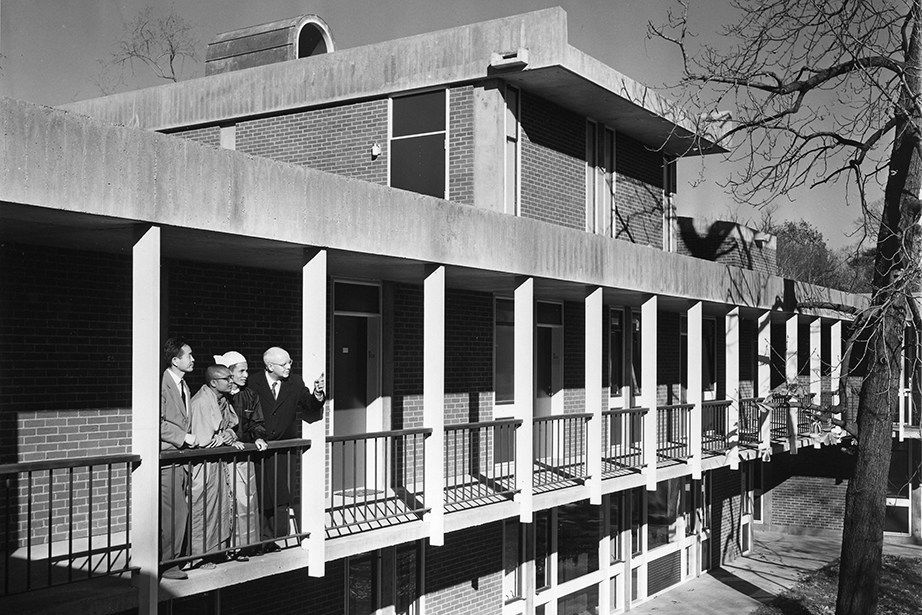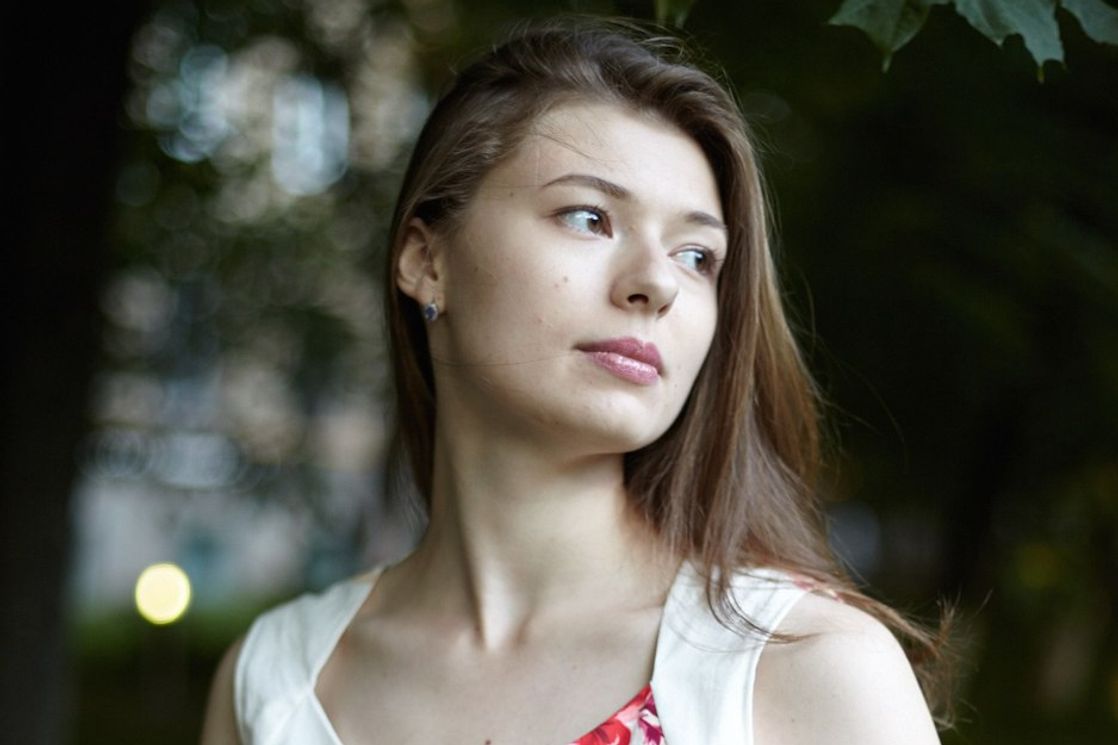Higher Education and State-building: Methaphors of Universities Revisited

How has higher education influenced the evolution of nations since the Second World War—and vice versa? Stanford professor Mitchell Stevens and Institute of Education researcher Ekaterina Shibanova have tried to answer this question in a special issue of the European Journal of Higher Education. They invited renowned historians, political experts, sociologists and economists to develop ‘a consensus on the role of higher education in political and social history after 1945.’ The special issue was created with input from researchers from Canada, Luxembourg, Russia, Germany, France, the UK, and Sweden.
‘Universities have always been a catalyst in the relationships between government, the market, and society,’ Ekaterina Shibanova explains. ‘But educational researchers often take a per se approach to their subject without properly examining the external context, institutions, states and politics. And on the other hand, political economists and historical sociologists rarely look into education. We wanted to create a fuller picture while still taking specific national features into account.’

The researchers decided to avoid using the accepted periodization of ‘before’ and ‘after’ the massification of higher education—the period in the second half of the 20th century when access to higher education grew beyond being a luxury afforded to a small section of the population. The researchers consider this model to be outdated, and instead proposed a four-point model oriented around:
the end of the Second World War and the Cold War;
the end of the Cold War;
the emergence of modern neoliberalism and the appearance of global rankings;
the rise of Asia.
‘This is still a form of periodization, of course, and it’s relative like any other kind. But these were pivotal points in the evolution of higher education systems in the countries featured in the special issue. They help us to contextualize institutional changes in the sector and—in our view—are more useful for comparing countries,’ said Ms. Shibanova.
The authors believe that higher education is an integral part of the general political-economic model, though different countries take vastly different approaches to it. For example, Scandinavian countries prioritize the development of educational opportunities, inclusion and ensuring equal life chances for all. Other countries in mainland Europe also support higher education, but the financial burden largely falls on students’ families. In the USA and the UK, higher education remains a personal investment for the future. The researchers divided state attitudes to education into three categories: national asset, citizen’s right, and commodity.
These different conceptualizations can exist simultaneously in the national culture and politics to different degrees, and they have a significant influence over the extent and nature of a society’s investment in education. ‘Societies that predominantly view higher education as a citizen’s right display more balanced social policies and fewer social risks, and educational resources are much less of a tool of stratification and competition there,’ explains Ms. Shibanova.
Ekaterina Shibanova
See also:
Early-Career Researchers Discuss Cooperation between Russia and Arab States
HSE University has hosted a conference entitled ‘Russia—The Arab World: Digital Future and Youth Cooperation,’ organised by the Faculty of World Economy and International Affairs (WEIA). The meeting took place in the run-up to the first Russian–Arab summit, due to be held in Moscow on October 15, 2025.
Pivot to the East: A Comprehensive Study of the Cultural and Civilisational Centres of the Non-Western World is the Top Priority
China and the Chinese world, South Asia, Southeast Asia, the Arab countries, Iran, Turkey, Central Asia and Africa are gaining new significance in Russia’s foreign policy. However, we do not know enough about the Eastern countries. It is necessary to change the priorities in education, starting from grammar school. Prospects for the development of domestic Oriental studies in the context of the new stage in the development of the system of international relations were discussed at a round table at HSE University.
‘I Admire HSE Students’ Eagerness to Learn, to Discuss, to Broaden Their Perspectives’
Robert Romanowski was a ‘Digital Professor’ at HSE University in November 2021. In his interview for the HSE News Service, he talked about the specifics of online teaching, his course on Strategic Branding, and the skills that are essential for marketing professionals today.
Russia and Africa: Time to Expand Cooperation
There is major potential for economic and humanitarian cooperation between Russia and African countries. Particularly, Russian organisations and universities can help transfer competencies and knowledge in the fields of agriculture, energy, industrial production, environmental management, climate change, and public administration. Experts and representatives of African embassies in Russia discussed these issues at the round table ‘Russia-Africa Sharing Knowledge’ hosted by HSE University.
The Brain in Space: Investigating the Effects of Long Spaceflights on Space Travellers
As part of an international project conducted with the participation of Roscosmos and the European Space Agency, a team of researchers used differential tractography to analyse dMRI scans ofcosmonauts’ brains and found significant changes in brain connectivity, with some of the changes persisting after seven months back on Earth. The paper is published in Frontiers in Neural Circuits.
HSE University-Perm and the Training Centre of the Uzbek Ministry of Finance Sign Cooperation Agreement
HSE University in Perm has become the first academic partner of the Training Centre under the Ministry of Finance of the Republic of Uzbekistan. The parties have signed a cooperation agreement in education and research.
HSE University Strengthens Ties with Netherlands in Agricultural Research and Education
On November 9, 2021, HSE University signed a memorandum of understanding with Wageningen University & Research, a major university in the Netherlands and one of the leading agricultural research institutes in the world. Participants of the signing ceremony included HSE University Rector Nikita Anisimov, President of the Wageningen University & Research Executive Board Professor Louise Fresco, and Dutch Ambassador to Russia Gilles Beschoor Plug.
The Majority of Russians Do Not Support Microchip Implants
The majority of Russians would not agree to being fitted with microchip implants for any purposes—medical or otherwise. A joint study conducted by HSE University’s International Laboratory for Applied Network Research and Aventica found that respondents believe the risks of personal data leaks and misuse to be too high.
‘We Can Now Say That the Finance Conference Is Global’
The 10th International Moscow Finance Conference, organized by HSE ICEF, took place on October 29–30 online. Vladimir Sokolov, Head of the International Laboratory of Financial Economics, which hosted the conference, talks about the participants, the key presentation topics and how they will impact the global economy.
HSE University Scholars Study Green Transition Risks and Greenhouse Gas Emission Regulation
The UN Climate Change Conference is taking place from October 31 to November 12 in Glasgow. The conference focuses on preventive measures against the catastrophic and irreversible consequences of rising average global air temperatures. Igor Makarov, Head of the HSE Laboratory for Economics of Climate Change, will be taking part in the Glasgow conference. In the following interview, he speaks about the pressing problems Russia and the world are facing, and the research HSE scholars are doing on climate change.


